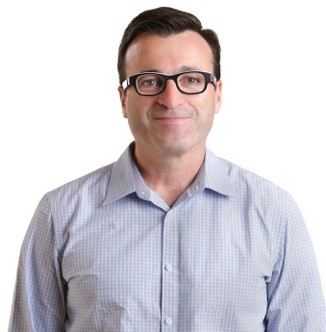Balancing act: Addressing important questions in research ethics
By Max Martin, MMJC’19
In health research, how do we balance the wellbeing of research participants with the need for scientific advancement?
That’s just one of the many questions Dr. Charles Weijer, the former Canada Research Chair in Bioethics, seeks to unpack with his work in health research ethics. “Broadly, you might think of research ethics as being motivated by this kind of question,” said Dr. Weijer, a research ethics professor who is jointly appointed with Schulich Medicine & Dentistry and the Faculty of Arts and Humanities, and co-founder of the Rotman Institute of Philosophy.
“Broadly, you might think of research ethics as being motivated by this kind of question,” said Dr. Weijer, a research ethics professor who is jointly appointed with Schulich Medicine & Dentistry and the Faculty of Arts and Humanities, and co-founder of the Rotman Institute of Philosophy.
“Health research is enormously important – it’s how we ensure new treatments work and are safe, and how we develop new ways of preventing and curing disease,” he explained. “Our capacity to do that depends crucially on the trust Canadians have in the research enterprise and ensuring that health research maintains the highest ethical standards through responsive and informed guidance.”
In December 2019, an ethics document co-authored by Dr. Weijer was published by the World Health Organization (WHO). “Ethical Considerations for Health Policy and Systems Research (HPSR)” provides a new and systematic approach to analyzing ethical issues in research on health care systems, policies and programs.
“What we try to do in this document is give researchers a step-by-step approach to figuring out what are the research ethics questions related to their work and how they should go about responsibly following established guidelines,” said Dr. Weijer.
The aim of HPSR is to generate knowledge that improves how societies organize themselves to achieve health goals. It addresses critical social issues on the coverage, quality, efficiency and equity of health systems.
However, most current ethical guidelines are focused on patient trials and don’t address this emerging field. Having defined HPSR ethics guidelines for scientists to follow promotes clear thinking and communication about ethical issues while helping to protect the research participants involved.
The WHO document is just one of many ways Dr. Weijer is working to enhance research ethics globally.
He’s currently involved in a research project that aims to be the largest, most comprehensive review of pragmatic research trials. Pragmatic trials are designed to inform decisions about the treatment of patients. In cluster-randomized trials, a type of pragmatic trial, entire hospitals or clinics are randomized – not simply individual patients.
Dr. Weijer is collaborating with 25 researchers across five countries, including biostatisticians, trialists and other philosophers. He’s also helping researchers internationally to design large, socially important trials.
“These complicated, multilevel studies raise new and important questions that we need to address, including who counts as a research participant, who gives consent, and who are the gatekeepers in these studies,” said Dr. Weijer. By further exploring these aspects, trials can be better designed to weigh the harms and benefits and to safeguard vulnerable participants.
Dr. Weijer first became interested in health care ethics after practising as a medical doctor in the Northwest Territories, working with Indigenous communities. At the time, the area had one of the highest rates of tuberculosis in North America.
“I was confronted with something medical school hadn’t prepared me for. I thought I could go out into the world and cure diseases. But in the community I was working in, people were sick because they were poor,” Dr. Weijer explained. “That got me thinking more about the need for a broader social and humanities perspective in medicine.”
This led him to pursue a PhD in philosophy, further inspired by the interdisciplinarity of the field. He has been working in the ethics of clinical trials since the 1990s, and in 2008, he co-founded the Rotman Institute of Philosophy at Western, which brings philosophers into collaboration with scientists, policymakers and the public. There, Weijer’s team produced the 2012 Ottawa Statement, the world’s first ethical guidelines for the conduct of cluster randomized trials, which has had a broad impact on science policy.
And while Dr. Weijer admits that many people might think of philosophy as abstract, he notes that it has an essential role to play in interdisciplinary health research.
“Today, like no other moment in history, Canadians face complex social problems that are far too big for one discipline to handle,” he said. “We need a diverse set of people around the table helping to answer these questions. Philosophy brings a number of useful tools to these complex problems.”
A key skill philosophers bring is ensuring that concepts are clearly defined. They also seek to surface hidden assumptions and ensure they are justified. Beyond that, philosophers have two-and-a-half millennia of ideas to draw on when attempting to solve difficult problems.
“I don’t come into a room of trialists and tell them what is right and what is wrong,” Dr. Weijer said. “We work together to find out what the issues are and how to solve them in a way that both protects the liberty and welfare interests of research participants while allowing important science to proceed.”



